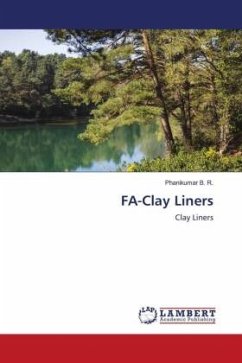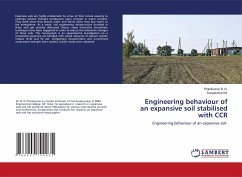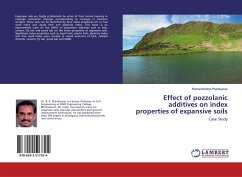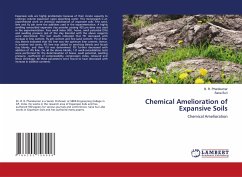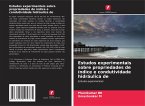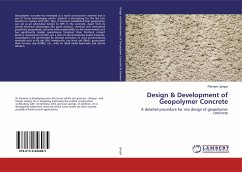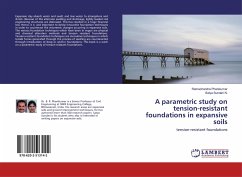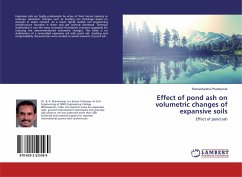Compacted expansive clays which are high in montmorillonite content also have a very low hydraulic conductivity. When expansive clays are blended with fly ash, an industrial waste, the hydraulic conductivity further reduces as the ash-clay blends result in increased dry densities at increased fly ash contents. Hence, fly ash- stabilised expansive clay can also be proposed as an innovative clay liner material. It is, therefore, required to study various physical and engineering properties of this new clay liner material. Liquid limit (LL) and free swell index (FSI) are important index properties to be studied in the case of this clay liner material. Laboratory experimental studies were performed on expansive clay-fly ash blends, which would be suggested as a new clay liner material. This monograph discusses LL and FSI determined using deionised water and CaCl2, NaCl, and KCl solutions of varying concentration at 0%, 10%, 20% and 30% fly ash content in the blend.
Bitte wählen Sie Ihr Anliegen aus.
Rechnungen
Retourenschein anfordern
Bestellstatus
Storno

